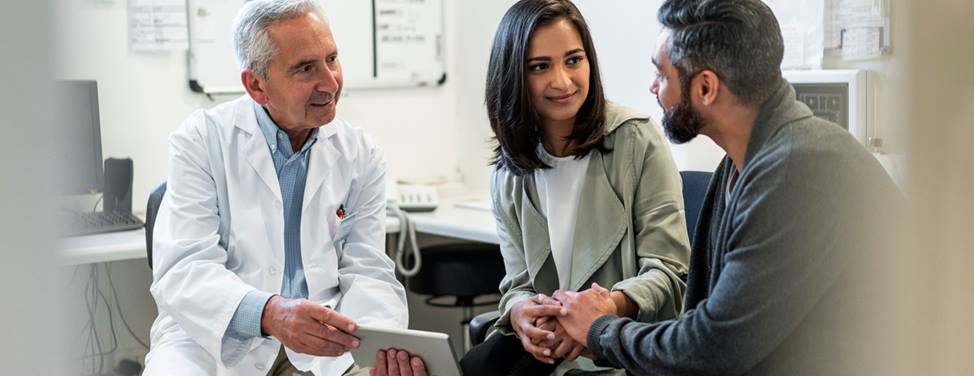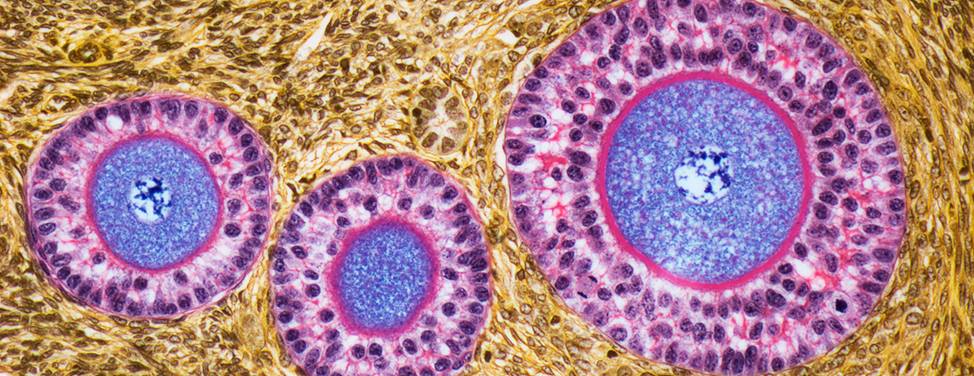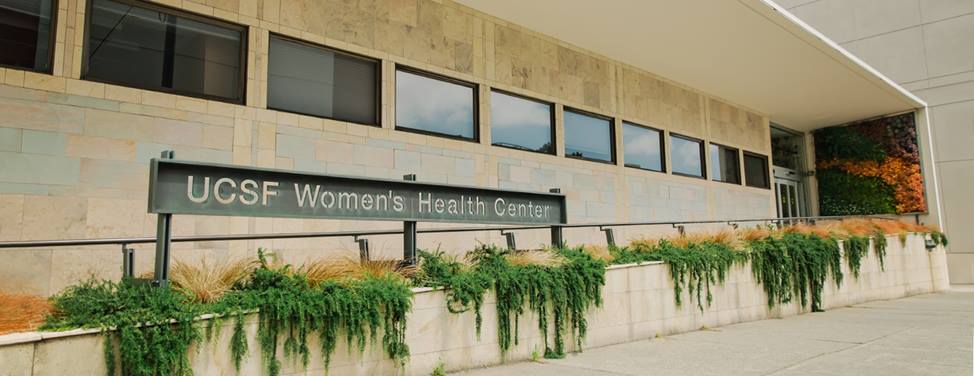
FAQ: Fertility Services at UCSF
- When should I consider seeking fertility services?
- Why should I choose UCSF?
- What can you tell me about your doctors and staff?
- What are your success rates?
- Do you accept my insurance?
- Are your doctors part of Brown & Toland or Hill Physicians?
- Do you offer early morning or weekend appointments?
- How much does a typical IVF cycle cost?
- What is covered in the base price of an initial consultation?
- What is the timeline for IVF?
- Do I need any tests before my appointment?
- What are your treatment options for patients over 40?
- What are your treatment options for women over 45?
- Do you help women who've had an unsuccessful round of IVF but want to try again?
- Do you serve the LGBT community, single parents and older parents?
When should I consider seeking fertility services?
Since the majority of women become pregnant within one year of having unprotected intercourse, most people are advised to try to conceive on their own for a year before beginning fertility testing.
For women over age 35, those with known medical problems that might affect fertility – such as polycystic ovarian syndrome or pituitary tumors – or women who are attempting to get pregnant through artificial insemination, earlier testing may be appropriate. It is important that both partners be tested initially to carefully assess the extent of the fertility problems.
Why should I choose UCSF?
When choosing a fertility program, one factor to look for is a compassionate and understanding team that contributes to your sense of well-being, empowerment and confidence during your fertility journey. At the UCSF Center for Reproductive Health, we are proud to provide you with this reassurance, together with solid experience, expertise and the most up-to-date treatments from a university-based program in a private, comfortable setting.
Developing a partnership is the foundation of our program because we believe that couples and individuals need to fully understand their reproductive potential and how it affects choices. Our board-certified team educates you about your condition and care every step of the way. We share our decision-making process with you, so that together we can make the best choices to achieve a successful pregnancy.
Because each patient is unique, treatments are tailored to meet your individual needs and situation, rather than following a standard protocol.
What can you tell me about your doctors and staff?
Our doctors are all double board-certified in reproductive endocrinology and obstetrics/gynecology, which means they have completed additional training to become specialists in fertility. They collaborate on cases so they can determine together what's best for you. Some of them have even had infertility treatments themselves. Learn more about our doctors and staff.
What are your success rates?
At UCSF, we're proud that our commitment to excellence is reflected in our patients' outcomes. Although each case is unique, we have some of the highest implantation rates in the country. Find out more about our success rates and how to interpret them.
Do you accept my insurance?
We accept insurance from many payors. Since each insurance plan is different, often the most direct route to answer this question is to call your insurance provider. They will be able to tell you if they cover fertility services and the benefit amount.
We are happy to discuss your options with you. Please call us at at (415) 353-7636 to check if we contract with your insurance company or for any other information.
Are your doctors part of Brown & Toland or Hill Physicians?
UCSF doctors are part of Hill Physicians Medical Group but accept authorizations from Brown & Toland physicians and all other physicians.
Do you offer early morning or weekend appointments?
We make every effort to accommodate our patients. The nature of an infertility practice is that we see our patients seven days a week. We are available when your body needs our support.
Additionally, we know that your treatments may require multiple appointments. To limit the disruption to your work and life, we see patients who need daily monitoring starting at 7:30 every morning, so you can get back to your life as quickly as possible.
How much does a typical IVF cycle cost?
Costs are dependent on the type of treatment. Since each person's situation is unique, we can't predict the exact price. We are more than happy to chat with you about your needs and provide you with prices and financing options. To speak with one of our financial counselors, please call (415) 353-7636.
What is covered in the base price of an initial consultation?
In an initial consultation, your doctor will review your records, take a thorough medical history and perform an ultrasound on the woman. This allows us to best understand your situation, avoid redundant tests and work together with you to devise the best care plan. The comprehensive initial consultation lasts a full hour and sets the stage for how we proceed.
What is the timeline for IVF?
The most successful IVF is one that is planned. We spend time prior to the IVF cycle gathering all the information needed to assure the treatment plan we've devised is the most appropriate plan for you, and that all controllable factors are optimized.
Once the protocol is selected, the process typically takes four to six weeks. The last two weeks are the most intensive, with frequent office visits and procedures. After treatment, it will take two weeks to know the results. This is often the most difficult part of the treatment, when it is important to take good care of yourself. Knowing it will be stressful allows you to be better prepared.
Do I need any tests before my appointment?
You do not need any testing before you visit the Center for Reproductive Health. During an initial consultation for either the man or woman or both, we can review any previous testing, your medical history and determine next steps.
Some patients come to us having no prior fertility workups, while others have received care elsewhere. We will start with you wherever you are, and work together to determine the best possible plan for your situation and needs.
What are your treatment options for patients over 40?
At UCSF, 25 percent of our patients are over age 40. We understand the unique requirements of this special group. Our team works with you to understand your individual potential for success. We will perform IVF for patients up to 45 years of age.
It is important for each patient to understand her own individual potential for success. Our goal is to give you the information you need, optimize your chances for success by individualizing your care, and then allow you to make the choice that's best for you.
What are your treatment options for women over 45?
The chances for pregnancy using your own eggs over the age of 45 are so low that we do not believe it is in your best interest to proceed with treatment. However, you may be an ideal candidate for oocyte (egg) donation. It is very clear that age impacts the oocyte, not the uterus. Your ability to carry a pregnancy is unaffected by age. First, we will need to assure that pregnancy is safe for you and your baby.
Oocyte donation allows women over the age of 45 to experience the entire process of pregnancy, the bonding that occurs with pregnancy, the ability to breast-feed and the potential to share the pregnancy with your partner.
Do you help women who've had an unsuccessful round of IVF but want to try again?
Absolutely. We treat many patients who have had previous IVF cycle failures. One of our specialties is the ability to evaluate and treat these patients and couples.
While some programs have "standard" protocols, we recognize the unique aspects of each patient and how different stimulations and protocols may have differing effects. At UCSF, we pay particular attention to your individual infertility factors and how you've responded to prior cycles, and we integrate the clinical and laboratory aspects of care.
Do you serve the LGBT community, single parents and older parents?
Yes, all the services we offer are available to the LGBT community, single parents and older parents. We have patients of all kinds and situations who have successfully used our services.
UCSF Health medical specialists have reviewed this information. It is for educational purposes only and is not intended to replace the advice of your doctor or other health care provider. We encourage you to discuss any questions or concerns you may have with your provider.



















